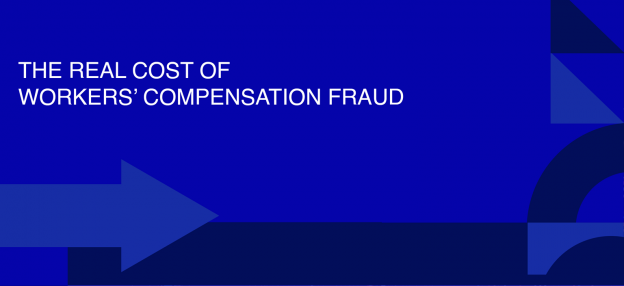The Real Cost of Worker’s Compensation Fraud

According to the National Insurance Crime Bureau, insurance fraud costs insurers $30 billion annually. Worker’s compensation alone costs insurers approximately 25 percent, or $7.2 billion a year, and that number is expected to rise.
What is the Worker’s Compensation Fund and how do employees benefit from it?
Worker’s compensation is a form of insurance facility provided by the state to the employees of an organization in the event of an accident. The organization is insured against incurring medical expenses and wage replacement in case an employee gets injured or falls ill during employment. Injuries or ailments that are self-inflicted or occur while an employee is violating business policies are not covered by worker’s compensation insurance.
To qualify for worker’s compensation insurance, an organization must qualify under certain parameters like the organization’s size, location of the business, employee rate and so on. The premium amount is based on factors like the number of employees, type of industry, and each employee’s job role. Depending upon the location of your business, you may not necessarily buy insurance as per the state’s provision. Nonetheless, it is beneficial to purchase worker’s compensation insurance to protect your business against lawsuits. An employee can still choose not to accept worker’s compensation insurance and directly sue the business.
With an understanding about the Worker’s Compensation Fund, let’s build an understanding of Workers Compensation Fraud and how that affects businesses.
Many people have a skewed perspective of what worker’ compensation fraud entails. It’s not just about an employee overstating his/her medical condition or claiming income while being disabled. Worker’s compensation fraud involves any kind of lie or false representation made by an employer, employee, or provider for financial gains. It could be the case where an employee gives a false picture of his/her injury, an employer gives a wrong classification of its employees to avoid paying for worker’s compensation insurance, or a service provider overstates the employee’s symptoms for more money.
Worker’s compensation fraud is proving to be a heavy monetary burden for the insurance industry as well as the citizens of the state.
There are various categories of compensation fraud. Let’s delve into its three main categories :
Claimant/Employee’s Fraud
1. False injury/ Exaggeration of an injury or illness
This category includes cases where an employee is claiming time off or financial benefits from his/her insurance provider by claiming false injuries or illnesses. There may also be employees who exaggerate their injuries or illnesses to claim time off work even though their ailments are mild.
2. Injury or illness that didn’t occur in the workplace
Worker’s compensation fraud can also be recorded if an employee falsely claims that they got injured or ill at work. Injuries that occur outside of the workplace are not included in the compensation fund. Claiming such expenses is a category of fraud.
3. Mileage fraud:
This involves an employee submitting an expense report for goods at an inflated cost. It also involves claiming expenses for returned purchases.
Employer Fraud
1. Misclassification of employees to get lower insurance premium
Employers can commit worker’s compensation fraud by not revealing the total number of employees under them in order to lower insurance premiums. They may even classify their workers as independent contractors instead of employees. This kind of fraud can have serious implications for the employer in the form of high penalties, paying back taxes and compensating workers with overtime pay.
2. Not revealing the truth regarding job safety conditions
There are certain employers who give a misleading picture of the job’s safety conditions in order to secure a low premium rate. Since premiums are dependent on the job responsibilities of an individual, employers tend to hide specific details even when they are well aware of the injury or illness that can be caused.
3. Not purchasing worker’s compensation coverage
Generally, worker’s compensation insurance is required if there are fewer employees. However, certain business owners feel they can save on the investment by covering the charges for insurance.
Medical or Provider Fraud
1. Conducting irrelevant testing or treatment of injured workers for financial benefit
A healthcare provider may overstate an employee’s injury or illness to charge more money from the worker’s compensation insurance. The employer may show extended leaves taken by the employee or inflated amounts of testing bills.
2. Charging for services or treatment not rendered
A healthcare provider may insist that the employee needs more treatments or simply come up with a false injury or illness claim. Fraudulent transactions in any organization account for a nearly 4 to 5% loss of business revenues. This number may appear insignificant in percentage terms, but monetarily it costs organizations much more than investing in a solution to tackle it. The objective of fraud detection should be to ensure that its impact is minimal and benefits must be measured against the costs, including investing in a fraud detection technology and the risk of losing customers due to false alarms.
Along these lines, Rawcubes has pre-built fraud detection models for worker’s compensation that make use of statistical machine learning and artificial intelligence to faster detect, manage, and prevent fraud without impacting customer experience.